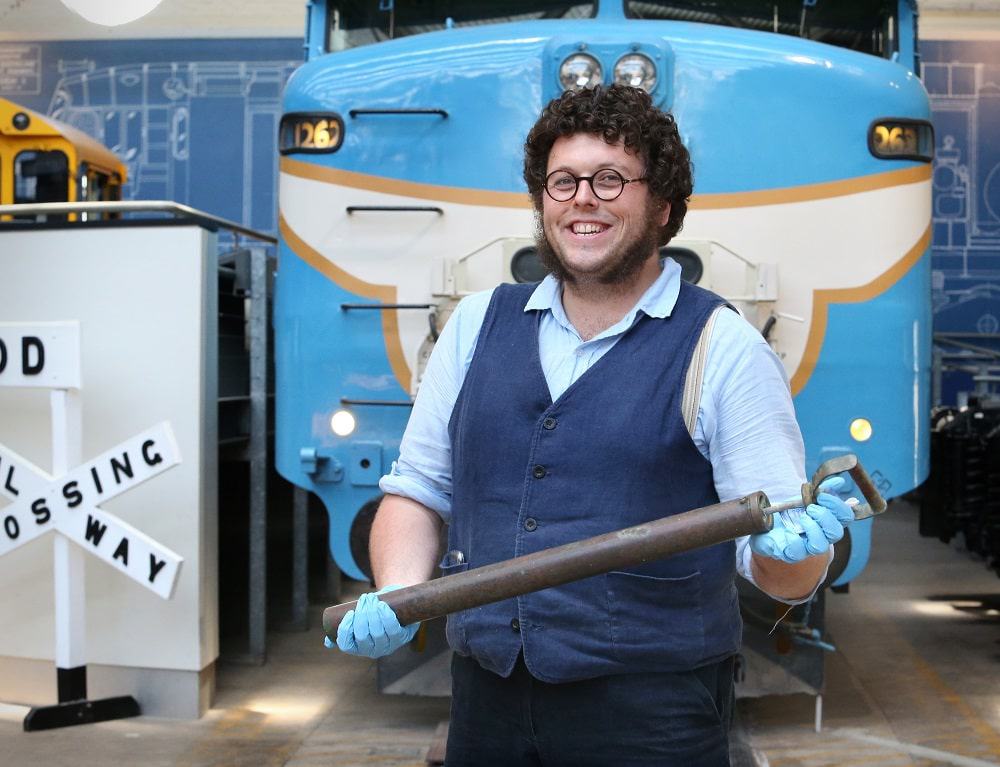
Queensland Museum Curator, Transport David Hampton, sat down with Ipswich First to discuss The Workshops Rail Museum’s collection of ‘foreigners’.
Throughout Australia, the term for a foreigner varies. They are also known as foreigny, foreignies, foreign order and ‘take home fringe benefits’.
The men working at the workshops were highly skilled and equally creative. Given a lot of their work was repetitive, it was a way to ply their trade on something a bit different with whatever materials they could find left over from a job.
A lot of foreigners were also practical, farmers might have tools that needed sharpening or repairing, for example. Generally they were items that could be easily taken home in a work bag.
Queensland Museum Curator, Transport David Hampton, knows of an entire carriage that was made as a foreigner in New South Wales.
There are stories from the Rockhampton Railway Workshops too. A washing machine was made there and smuggled out on a pushbike.
The rider put the outer casing over his body and rode his bike looking out through the handle hole, Ned Kelly style.
It is rumoured that a clothesline and even a partially constructed boat were also crafted at the Rockhampton workshops.
Mr Hampton looks after the Foreigners on display at The Workshops Rail Museum in North Ipswich.
“Because of the nature of foreigners that were made illegally by people who worked here at the workshops they often get donated to us anonymously or with very little information surrounding them,” he said.
“We know the makers of some of the objects, but we tend not to say, to protect the interested parties. “They do still tell a wonderful story about the skills that were practised here and about the people who worked here.”
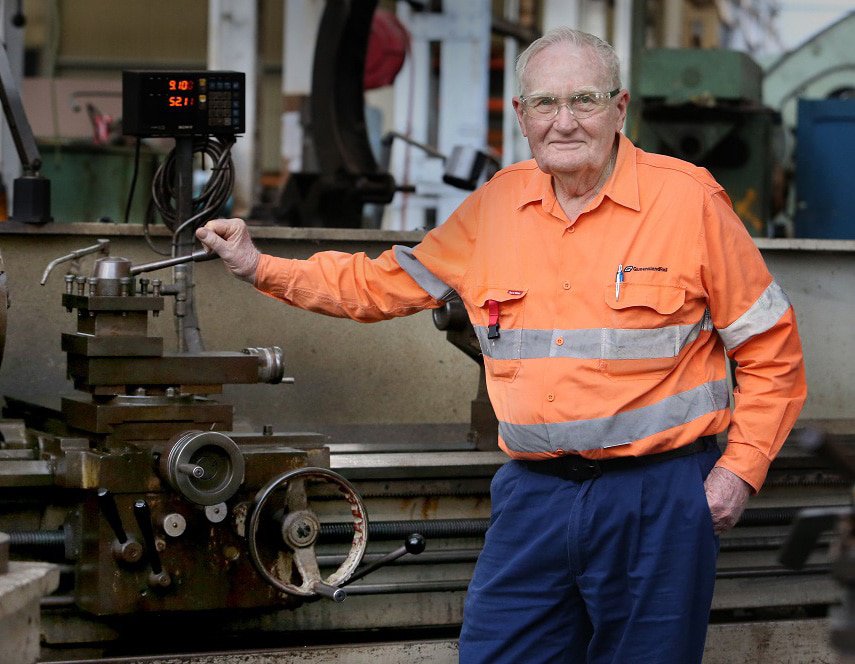
Laurie Birgan was a turner at the North Ipswich Railway Workshops back in the 50s
“I wanted to make a fishing reel but I couldn’t just make one because you needed the foundry to cast the backs in brass. along with the clip that attached to the rod,” Mr Birgan said.
“That was okay because one of the apprentices started at the same time as me, but it didn’t just stop there. He would then want one, so I’d have to make one for him too.
“Then I went over to the carriage section because I needed a piece of cedar or beech to turn the handle out of, so he’d say ‘yes, I can get you an off cut’, but he’d want one for doing that too.
“So then I had to go back to the foundry and ask for another cast, but he was way ahead of me. He had cast six at once and left the others in the cupboard, so to get one, cost me three.”
Mr Birgan recalls another story about a bloke who used to make chairs.
“Everybody on a Friday afternoon would line up, the whistle would go and everybody would move at once and a lot of people would run,” he said.
“A lot of the carpenters would make their own bag out of light ply and on this occasion when the workman put his bag down in the line-up somebody unlatched it.
“The whistle goes, he picks it up and runs. Well bits of different pieces of chair went flying everywhere and ended up all over the ground, but there was no way in the world he was going to stop and pick them all up.”
David Hampton talks us through three foreigners from The Workshops Rail Museum collection
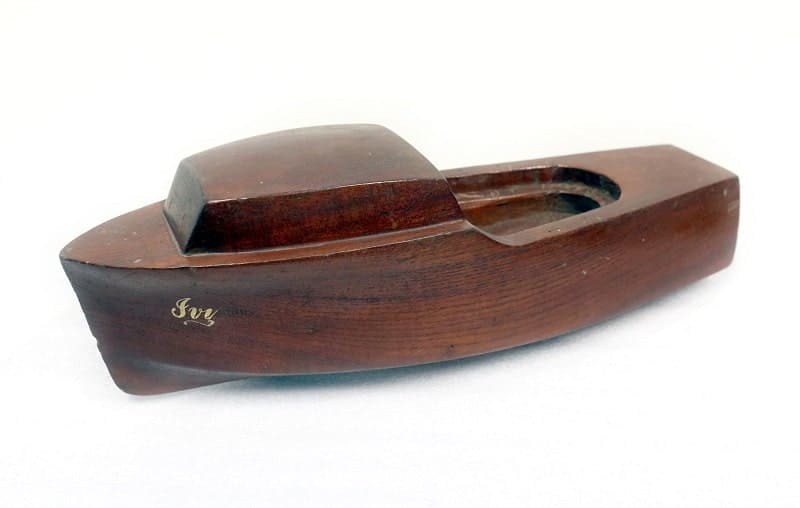
“It’s been shaped from a block of wood which shows good craftsmanship. It’s light wood and good quality.
“I’m not sure what application they would have used that for in a railway setting but it would have been left over from a job from the coaches or wagons.
“It’s been lacquered as well which tells us something. As they would have used what materials were on hand at the time, at some point they were lacquering the carriages rather than painting them, leaving a wood finish.
“Something about this one, I have great childhood memories of playing with boats. I feel like this was made for someone to play with. For me, this is a toy. It’s not a detailed scale model.
“This is something that has been made for a loved one by someone who worked here at the workshop, and it really shows.
“Even down to the beautiful sign writing on the side. I wonder if someone made this then went to the paint shop and said ‘can you paint Ivy on that for me?'”
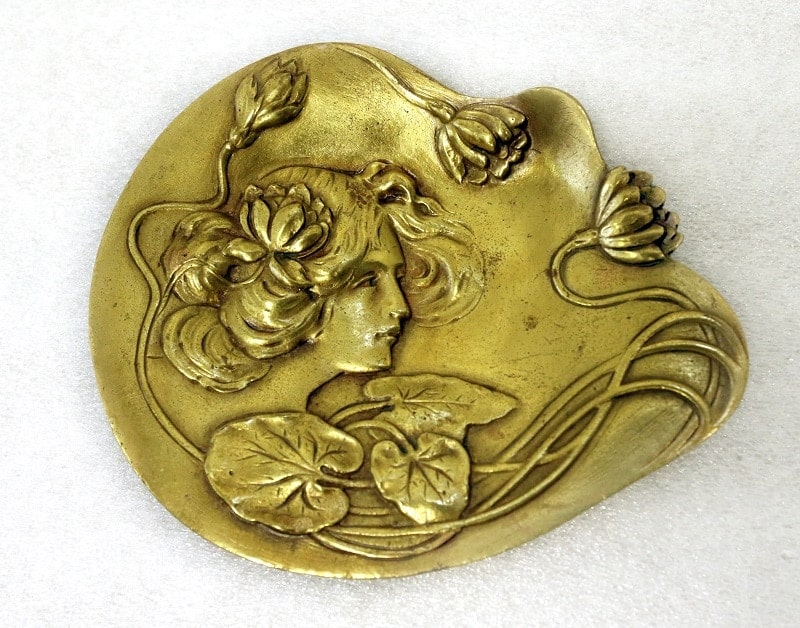
“It’s moulded from a wooden pattern of some sort. So again, using processes that were used here at the workshops.
“They produced wooden patterns of wheels and locomotive components, place the patterns into sand, take them out and then pour molten metal into them.
“It’s come from a place where the main focus was practical manufacturing and the producing of things. But then there was this level of artistry that’s quite fantastic. It is very refined.”
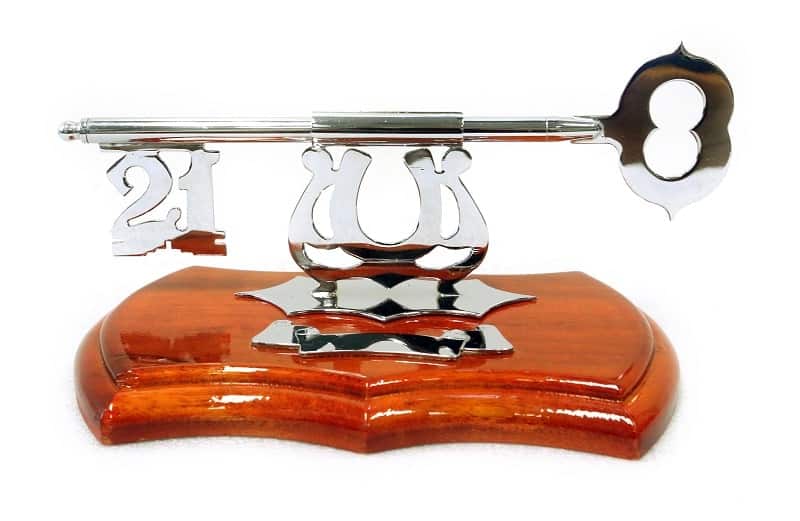
“It’s been chromed and has a very fresh wooden base on it. Interestingly, it has not been inscribed.
“It suggests there may have been more than one produced. There may have been a little assembly line and this one was never given to someone.
“I think you would keep it if it had your name on it.”
Items include yabbie pumps made from old bits of locomotive boilers along with coat hangers, leather bags, fishing reels and more.
“It’s wonderful to look at those objects and try to make the link back to where those objects come from,” Mr Hampton said.
You can see some foreigners on display at the The Workshops Rail Museum, open daily from 9.30am to 4pm.

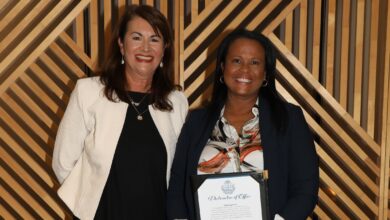
5
5